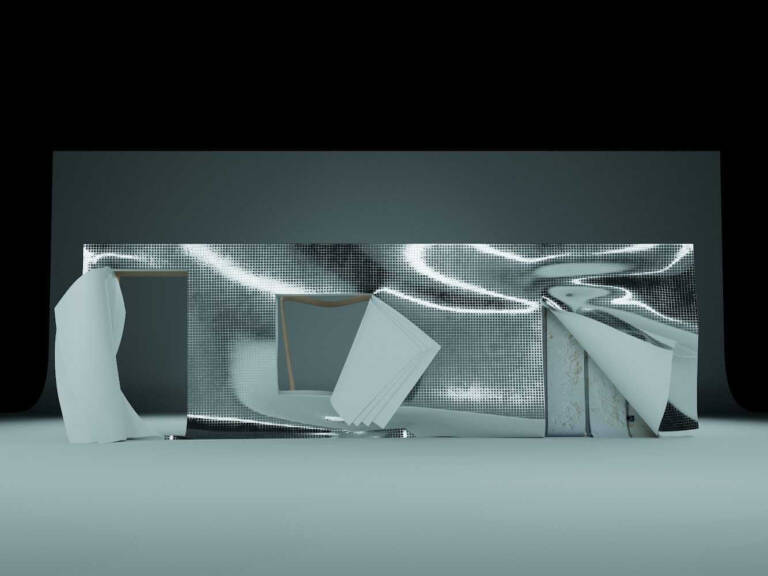From May 10th until November 23rd of 2025, the 19th annual Venice Architecture Biennale will be open, ready to display innovations and designs from forward-thinking artists around the world. We sat down with this year’s curator: the renowned architect and scholar, Carlo Ratti, to talk about this year’s theme Intelligens: Natural. Artificial. Collective and his focus on ecological progress through the inclusion of diverse disciplines, merging the worlds of science and design in route to a more sustainable future where architecture can exist in harmony with, rather than at the expense of, nature. To learn more about Carlo Ratti and his manifesto for the Venice Biennale, you can find our interview here.
Divided into two parts; The Main Show and the National Pavilions; this year’s Biennale offers a new twist as the traditional Central Pavilion at Giardini is under construction, the city itself will step in as a new type of venue, with exhibitions shown around the island in addition to the remaining pavilions of Gardini and the Venice Arsenale. Guided by Carlo Ratti’s three principles of Natural Intelligence, Artificial Intelligence, and Collective Intelligence, the 2025 Venice Biennale makes a blunt self-examination, hosted in a city itself at risk due to climate change, and asks, what needs to be done and what can we do?
With esteemed participants such as Studio Gang, Bjarke Ingels, Lina Ghotmeh, and Patricia Urquiola; this year’s Venice Biennale promises to be one not to be missed. Here are our top picks for what to look out for.
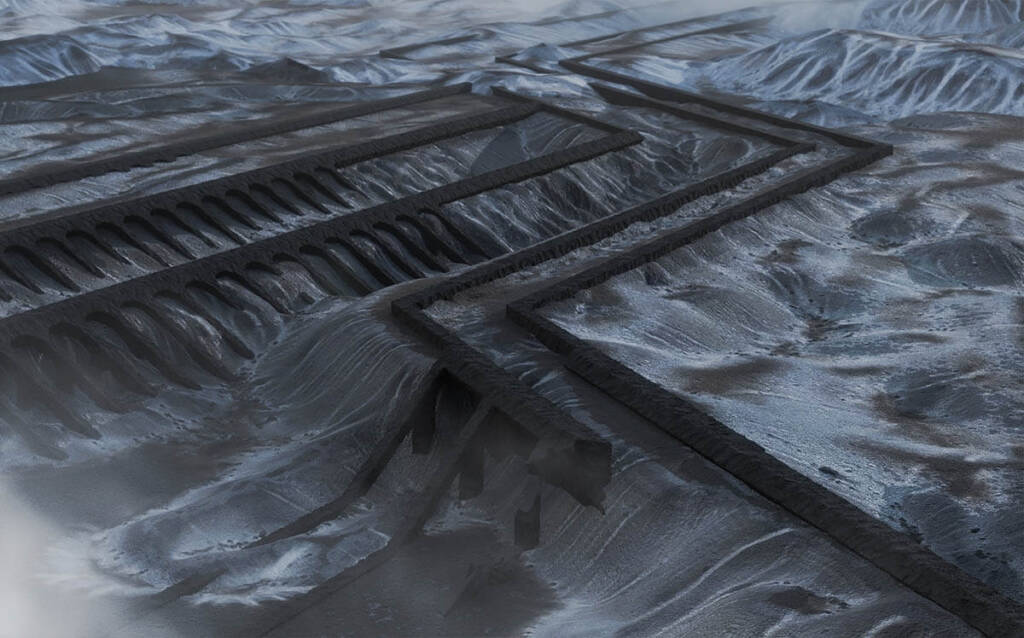
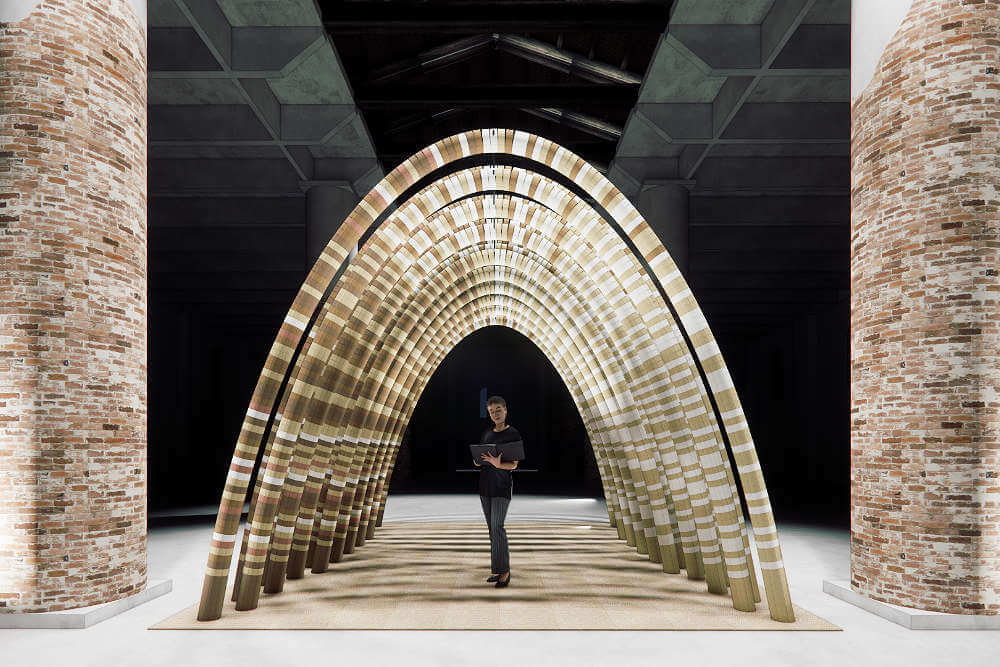
Venice Biennale Main Show:
The Venice Biennale Main Show: Intelligens
May 10th – November 23rd, 2025
Giardini / Arsenale / TBD
Venice Biennale: Margherissima
May 10th – November 23rd, 2025
Polveriera Austriaca, Forte Marghera in Mestre
Victoria and Albert Museum London Applied Arts Pavilion Special Project: On Storage
May 10th – November 23rd, 2025
National Pavilions:
Brazilian Pavilion: (RE)INVENTION
Curator: the Plano Coletivo group (Luciana Saboia, Matheus Seco, and Eder Alencar)
Brought by the Plano Coletivo group, (RE)Invention tackles the theme of Intelligens through ancestral knowledge, juxtaposing the way Amazonian societies created their urban infrastructure in the terrine with that of modern day Brazil. Merging modern knowledge with information garnered from recent archaeological discoveries, the exhibit pulls from the Amazonian approaches to vegetation and land management in order to reimagine the contemporary infrastructure in coherence with the natural world.
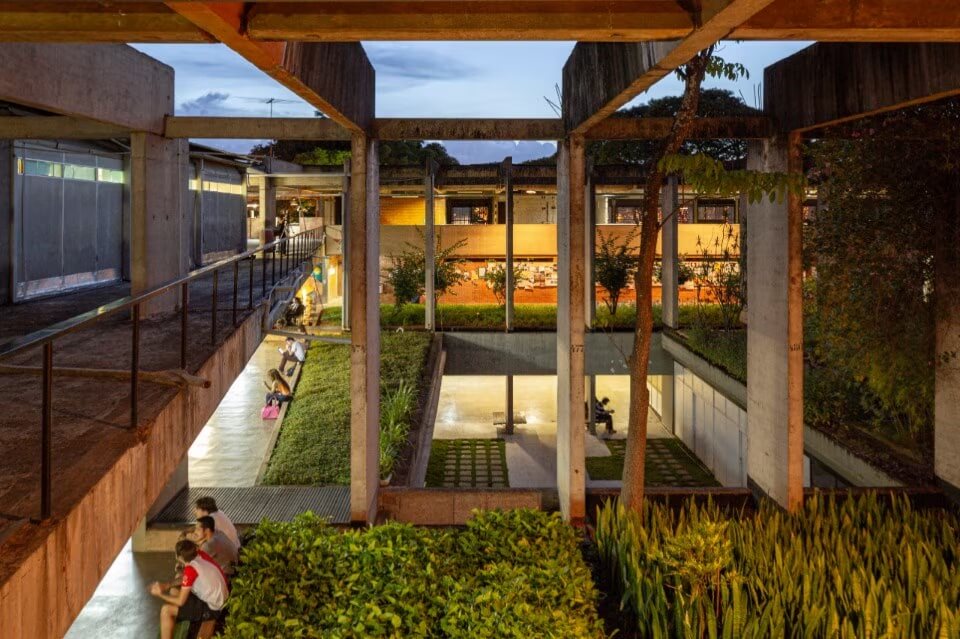
Photographed by JOANA FRANÇA
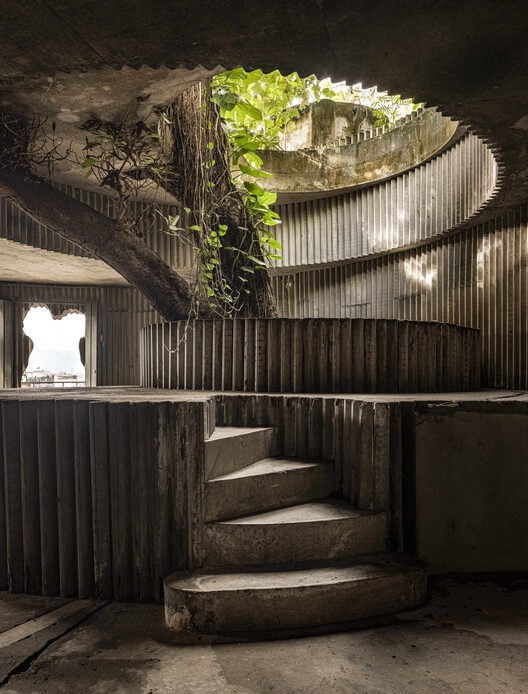
Photographed by JOANA FRANÇA
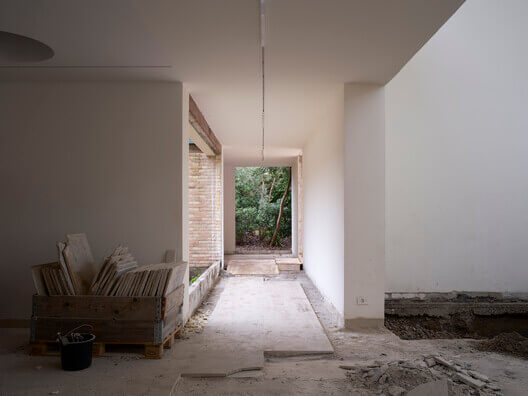
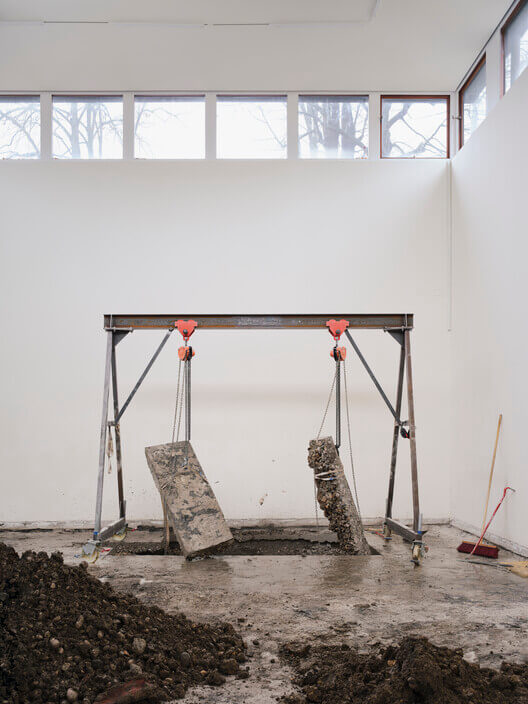
Danish Pavilion: Build of Site
Curator: Søren Pihlmann
An attendee of the Venice Biennale since its establishment in 1895, the Danish Pavilion repurposes their space as a medium. With a focus on reuse, Build of Site advocates for transforming the architectural world through making use of what is already present, rather than contributing to the wasteful abandon that comes with the pursuit of new. Through the use of contemporary technology, bio-binders, and “hyper-local” materials in addition to those already found in the Pavillion, the exhibition offers a framework for a new type of sustainable construction that decenters the new and uplifts the elements already attained.
Togo Pavilion: Considering Togo’s Architectural Heritage
Curator: Studio NEiDA (lead by Jeanne Autran-Edorh and Fabiola Büchele)
Entering its first year as a participant to the Venice Biennale, Togo’s exhibit presents a comprehensive pedagogy, introducing the complex robustness of Togan design and heritage spanning from ancient times of environmental cohabitation with such as the Nôk cave dwellings, and traditional uses of clay and natural materials, to the 21st century strides towards environmental conservation after the country achieved its independence: An exemplary integration of modernism in harmony with the natural ecosystem.
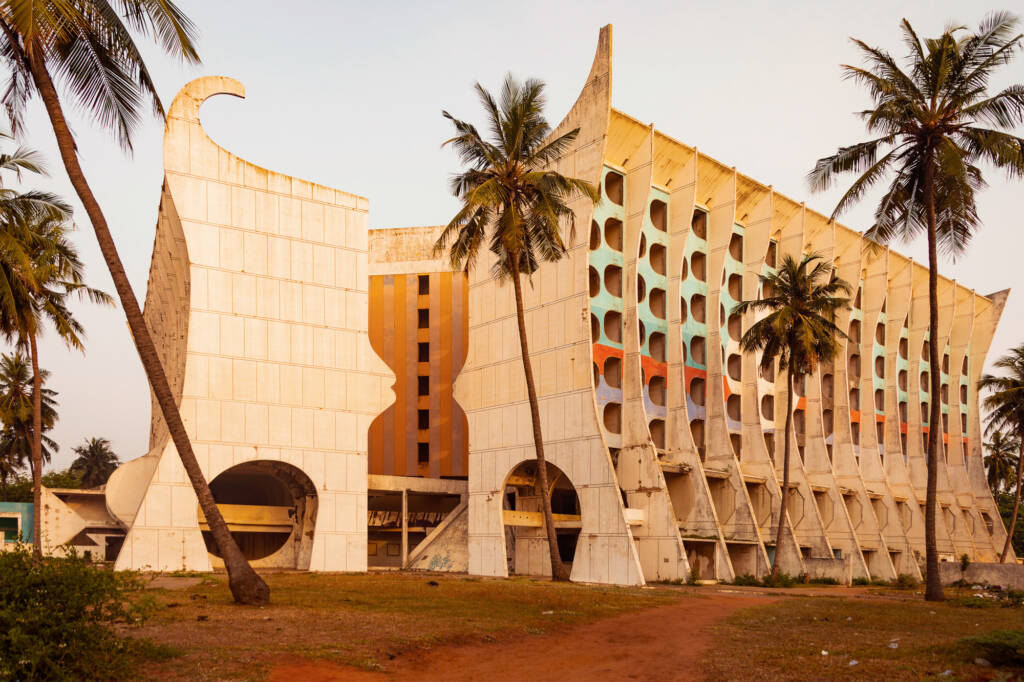
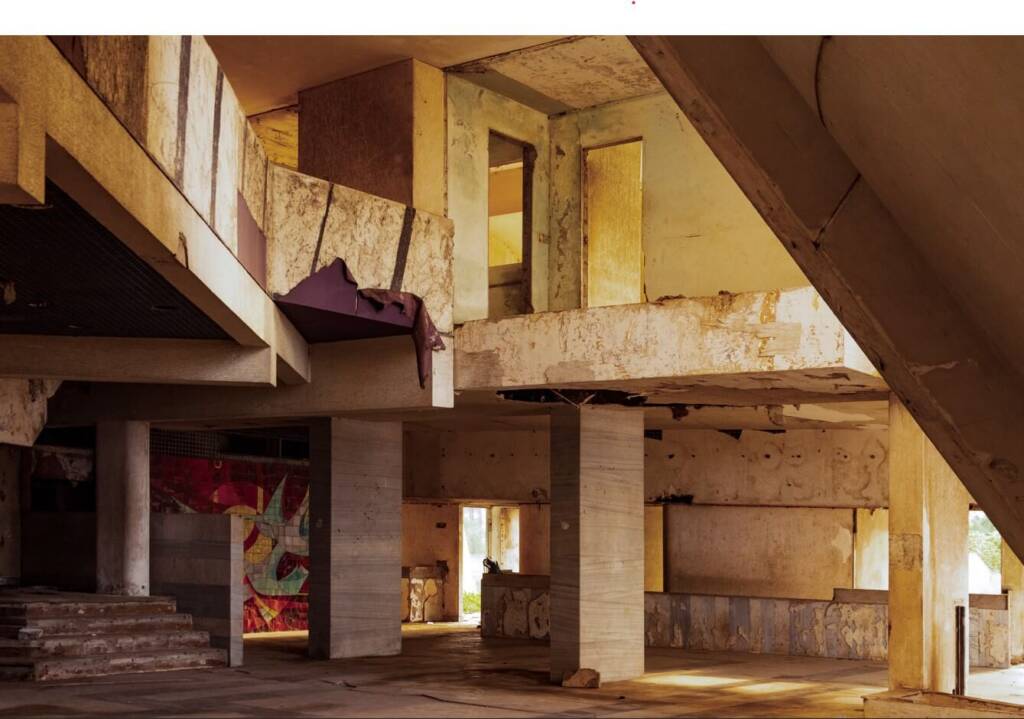
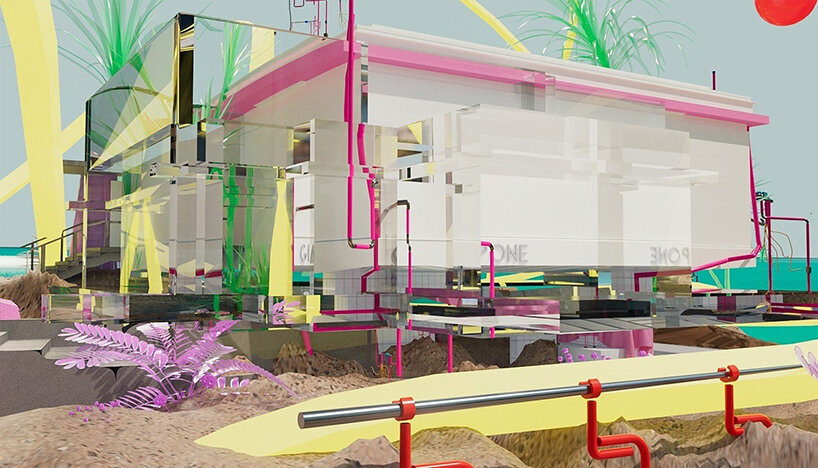
Japanese Pavilion: In-Between
Curator: Jun Aoki
This exhibit introduces a dialogue between humans and generative artificial intelligence, proposing a new type of socio-technological relationship. Inspired by the Japanese word ma, a word used to describe the value of the tension held in negative space, In-Between examines and challenges the societal dismissal of mistakes – when committed by both people and artificial intelligence- through an artistic and technological lens while encouraging the re-framing of those errors as opportunities for creativity. The Pavilion itself will be designed in collaboration with generative artificial intelligence, encouraging meaning in the shortcomings.
Saudi Arabia Pavilion: The Um Slaim School, An Architecture of Connection
Curator: Beatrice Leanza, assisted by Sara Almutlaq
Created by women-led group Syn, The Um Slaim School exhibit acts as an collaborative learning experience for viewers in addition to its presentation of research into architecture’s role in Saudi Arabian heritage, community, and environmental history. With a special attention to the value of interactive learning, The Um Slaim School embraces the theme of Intelligens through educational discourse, bringing together different fields to participate in a syndicate of innovation through reflection covering issues such as urban sustainability, resilience in the face of climate change, and the role of design in habitation.
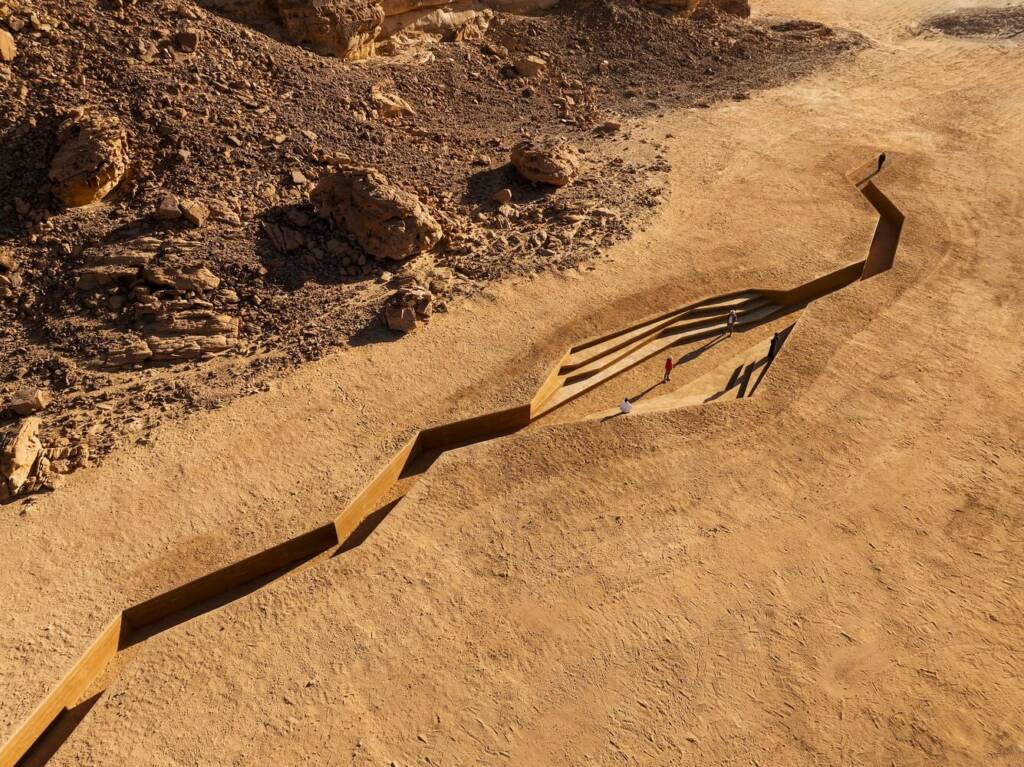
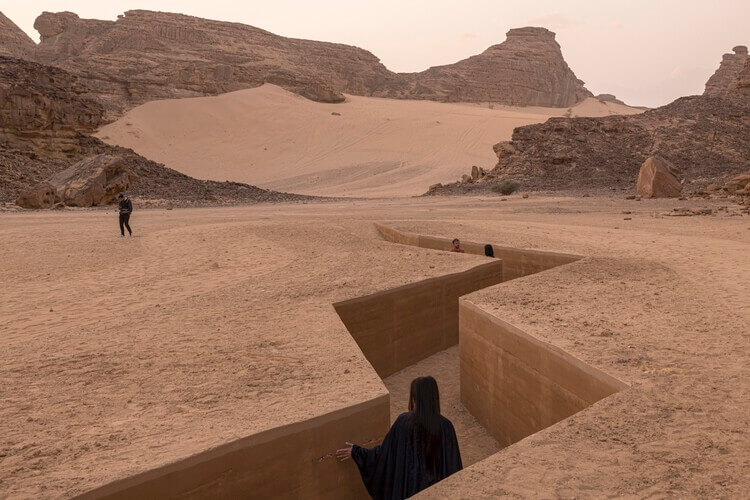
Photographed by MARCO ZORZANELLO
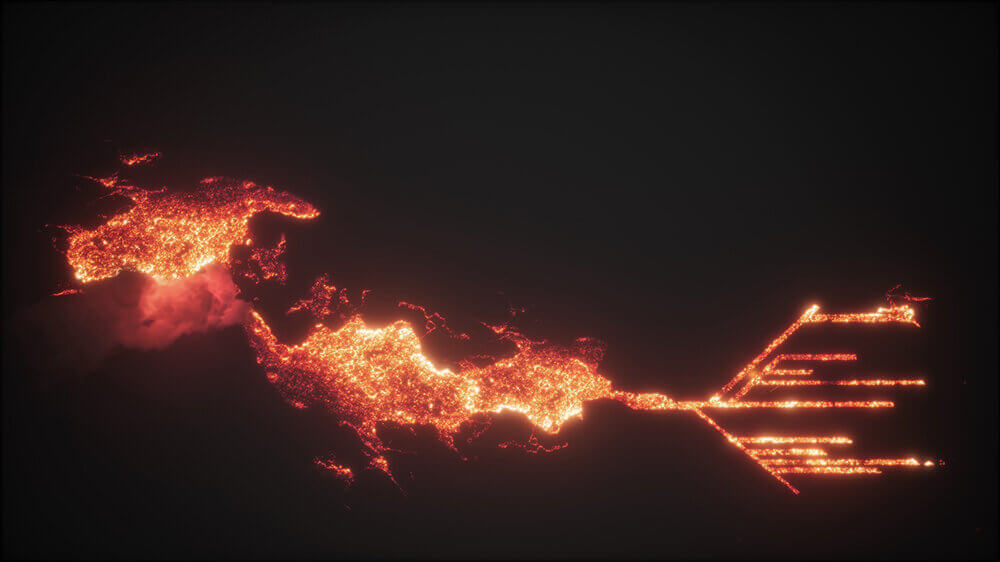
Iceland Pavilion: Lavaforming
Curators: Arnhildur Pálmadóttir and Arnar Skarphéðinsson
Amid the strong fear and awe that lava evokes, curators Pálmadóttir and Skarphéðinsson propose that it may also act as a source of renewable energy. Undoubtedly one of the most anticipated exhibitions, Lavaforming challenges the theme of Intelligens through the scientific and theoretical research of molten rock in controlled contexts, drawing inspiration from Iceland’s pioneering of geothermal energy use over a century ago. In addition to the presentation of research and prototype lava bricks, the exhibit will show a short animated film that illustrates an urban structure integrated with the geological energy and processes.
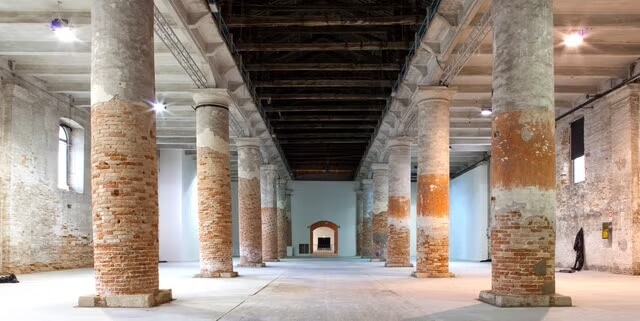
Workshops and Conferences:
To attend any of the Venice Biennale events listed below, you can purchase your tickets here.
Collective Baukultur
Teatro Piccolo Arsenale (Campo de la Tana, 2161, Venice)
17:00 – 19:00
Saturday, May 10th
Organized with the Davos Baukultur Alliance, this symposium will act as the official commemoration of the GENS Public Program, introducing speakers such as Antonio Gómez-Palacio, Chair of DIALOG and Head of Strategic Initiatives for Urban Transformation for the World Economic Forum, Vivian Brady-Phillips. Collective Bakultur will foster productive discourse about cross-sector collaboration, and the responsibility to share knowledge in order to create a better life universally.
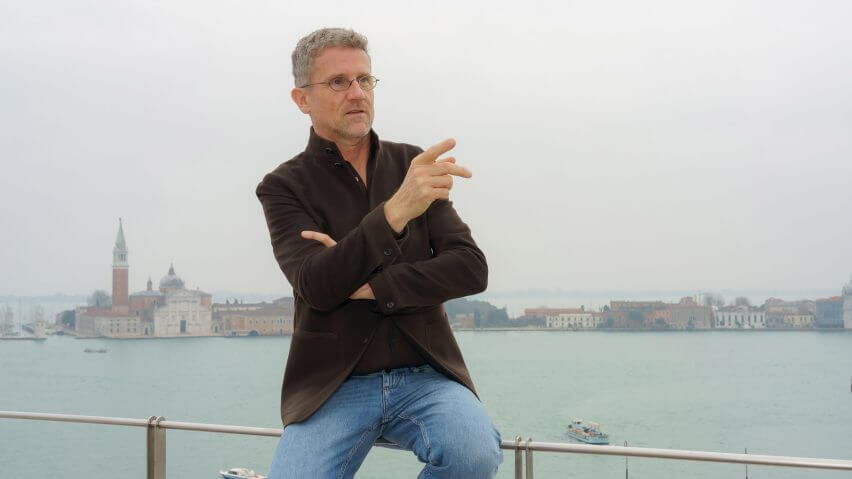
Courtesy of LA BIENNALE DI VENEZIA
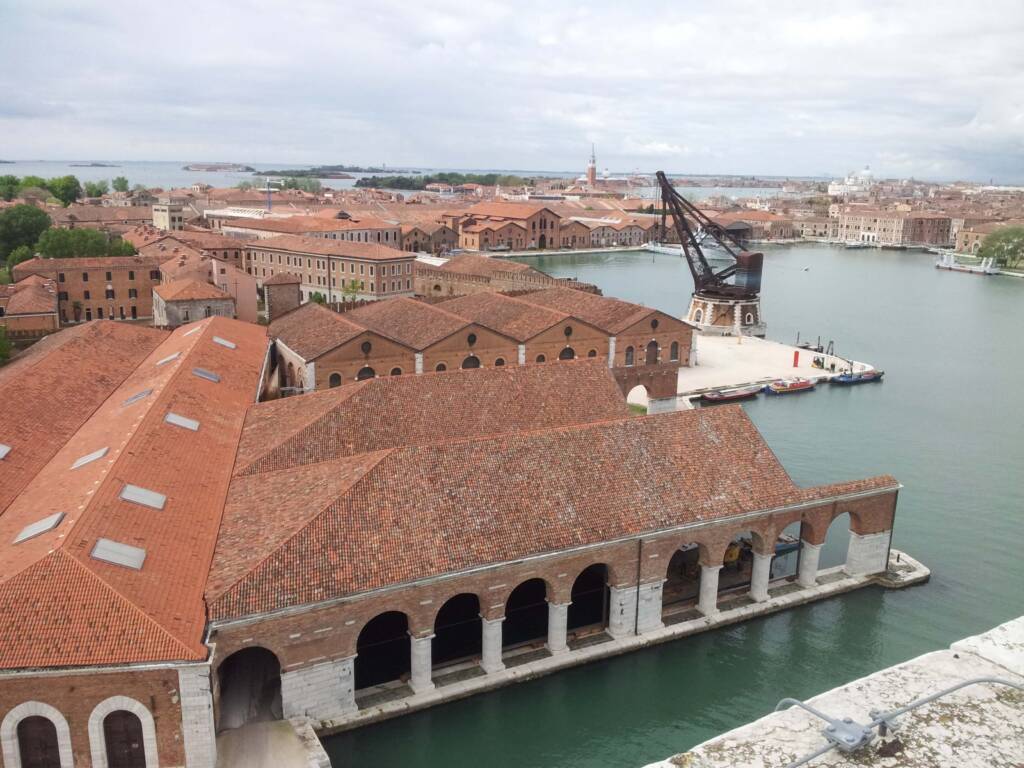
Photographed by ANDREA AVEZZÙ
Gone with the (Hot) Wind? Cities and Artistic Heritage Facing the Climate Crisis
Ca’ Giustinian, Sala delle Colonne (San Marco 1364/A – 30124, Venice)
10:00 – 13:30
Tuesday, May 13th
Hosted with the Italian Alliance for Sustainable Development, this conference urges action in preventing the worsening effects of climate change on human-inhabited areas, while warning of the onset determinants that are already beginning to occur. With speakers such as Hélène Chartier (Director of Urban Planning and Design at C40), Antonio Aurigemma (President of the Regional Council of Lazio), Enrico Giovannini (Scientific Director of ASviS), Ferruccio Resta (President of the Fondazione Politecnico di Milano), and Mattep Lepore (ANCI Coordinator of Metropolitan Cities), this event will discuss the need for solutions through invention and policy.
The Intelligence of Cities
Ca’ Giustinian, Sala delle Colonne (San Marco 1364/A – 30124, Venice)
10:00 – 19:00
Saturday, May 24th
Co-organized with Jean-Louis Missika (editor of La Grande Conversation and former Deputy Mayor of Paris for Urban Planning, Architecture, Innovation, and Greater Paris), featuring speakers from a variety of fields such as Jean Guiony (founder of Aqua Alta and President o the Institute of Land Transition), Phillippe Chiambaretta (architect and founder of PCA-STREAM), Gabrielle Fack (economist), in addition to others, this seminar gathers the collective knowledge of the adept through five “round table discussions” examining issues such as re-generative design in rural and urban contexts, AI surveillance, and underground space operations. Concurrently, hosting two “hackathons” where students of architecture, design, and urban planning will work to create and present solutions to these issues.
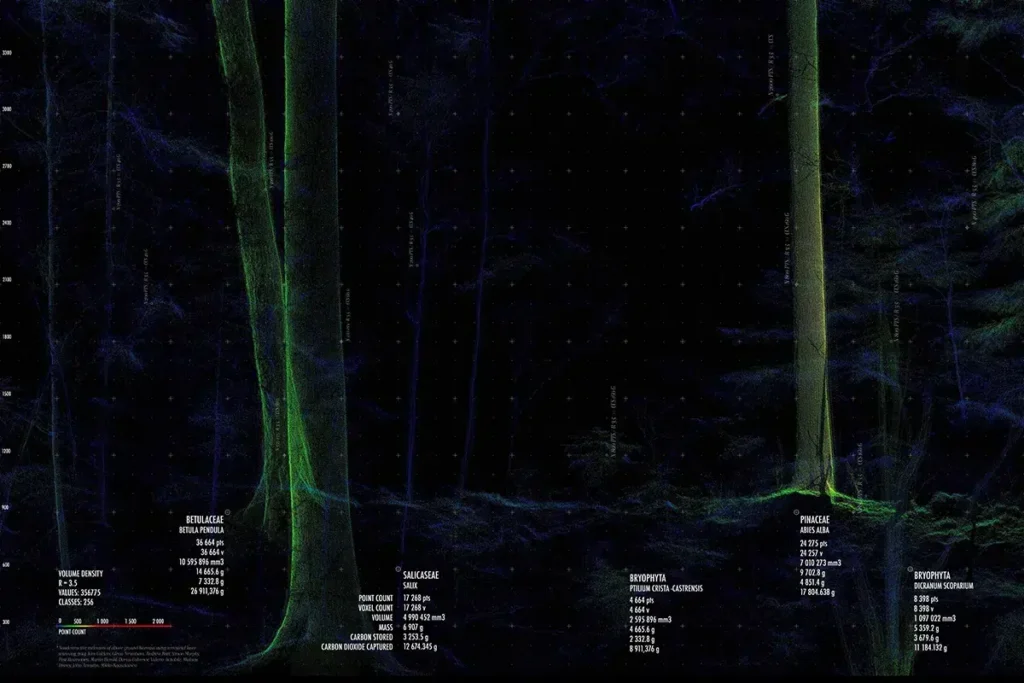
Carbon Capture and Storage Potential of the Forest Ecosystem
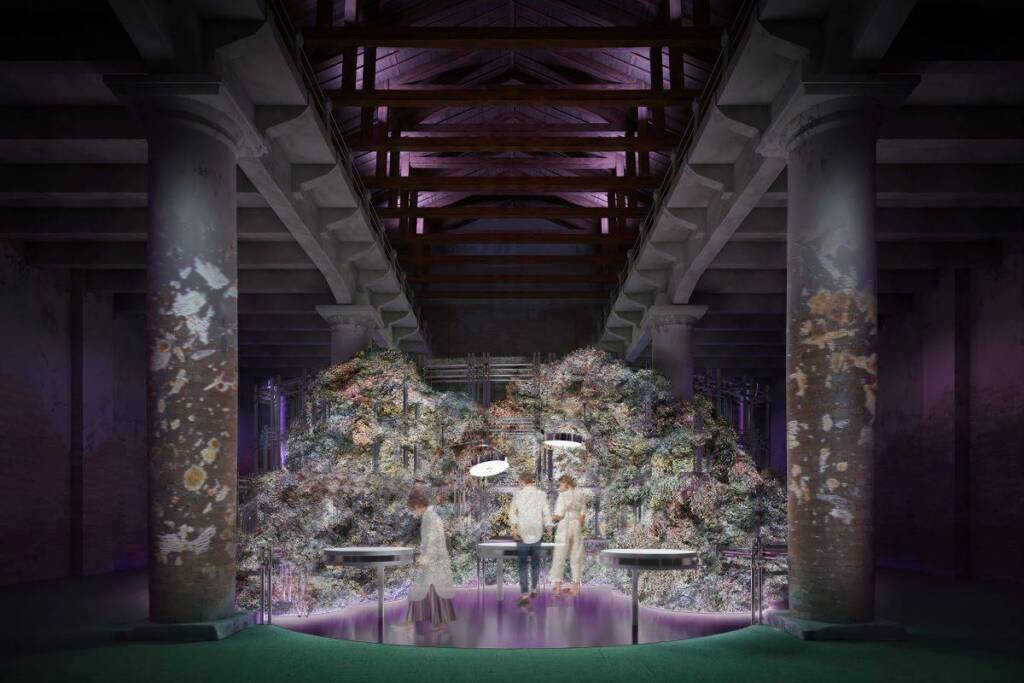
The Other Side of the Hill
European Cities Conversations on Climate-Responsive Urbanism and Architecture
Ca’ Giustinian, Sala delle Colonne (San Marco 1364/A – 30124, Venice)
10:00 – 14:00
Wednesday, May 28th
With a speaker’s panel made up of Deputy Mayors from Lisbon, London, Athens, Palermo, Rome, and Bologna, this conference focuses on policy and its execution in combating climate change. The event is hosted by the network C40, a coalition of mayors from around the world working together. Speakers like Maro Evangelidou (Deputy Mayor of Urban Regeneration and Resilience of Athens) and Maurizio Veloccia (Deputy Mayor for Urban Planning of Rome) will demonstrate their own collaborative efforts in creating inclusive and ecological housing solutions for all in the face of both climate change and the housing crisis.
Climate Tech Startups
Corderie dell’Arsenale, Speakers’ Corner
15:00 – 19:00
Saturday, June 7th
Created in partnership with Venice Climate Week, an event lasting from June 3 to 8th of 2025, this conference invites Ca’ Foscari University professors Simona Maschi (President of Venisia) and Stefano Micelli, among others, to discuss technology’s role as a potential solution to combating climate change. Covering topics such as Deep Tech and Nature Co-Design, the seminar seeks to insite impactful discussions, tangible next steps, and encourage “systemic innovation.”
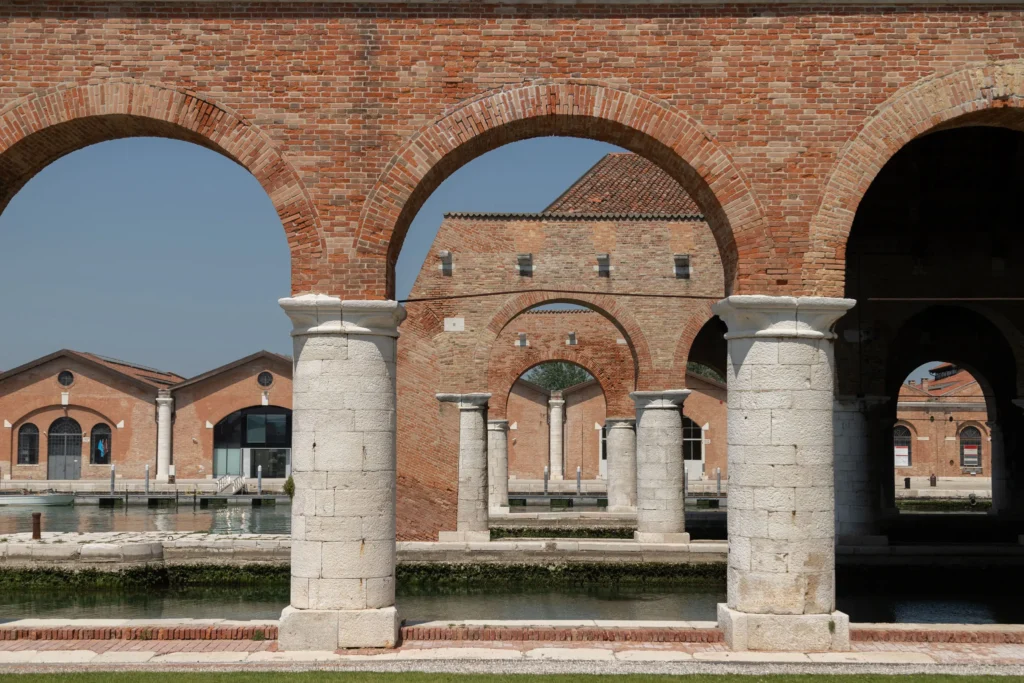
Parallel Exhibitions:
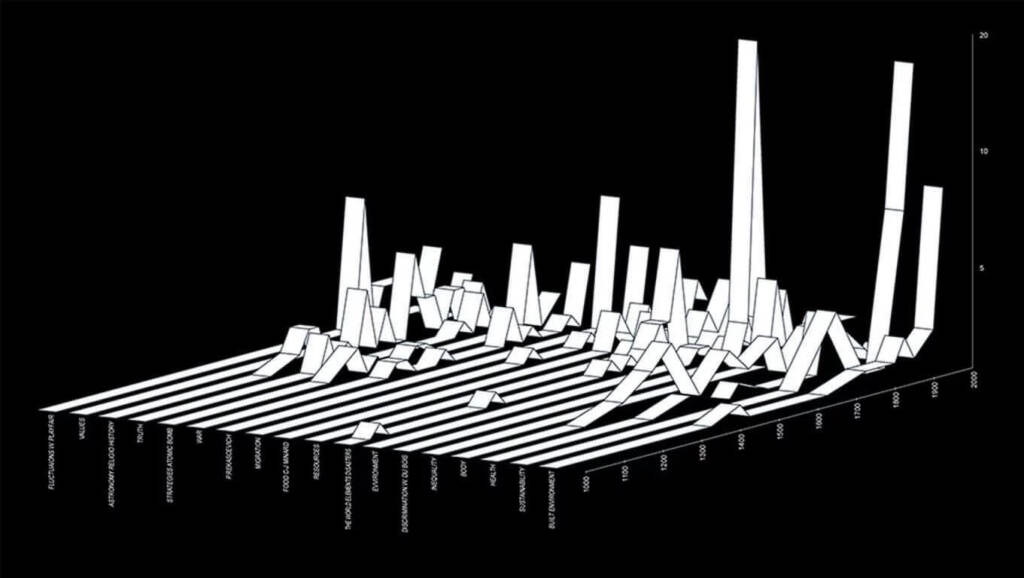
Diagrams by Amo/oma
May 10th – November 24th, 2025
Fondazione Prada Venice, Ca’ Corner della Regina, Santa Croce
Through the collection of over three-hundred archived diagrams, spanning printed works from the 12th century to digital renderings of the modern day, Diagrams by the Rem Koolhas’ studio Amo/Oma, reinvisions data as a means to creating a narrative historiography; taking both an admiring and a critical look at its uses while encouraging the audience to engage in their own reflection of how the communication of data influences their perspective on social, political, and polemological issues. In addition to Amo/Oma, the exhibition was researched by Fondazione Prada in partnership with Giulio Margheri, Sietske Fransen, Max Planck, Bibliotheca Hertziana and Max Planck.
Telemachus: The Quest for Self by Jakub Flejšar, Pavel Roučka, Maxence Guillon, and Didier Guillon
May 3rd – November 22nd, 2025
Fondation Valmont – Palazzo Bonvicin
The second rendition by the Fondation Valmont to create a visual realisation of Homer’s Odyssey, Telemachus, marks the journey of transformation through a metamorphosis of self. Artists; Jakub Flejšar, Pavel Roučka, Maxence Guillon, and Didier Guillon come together to tell a deeply experiential story of change, genesis, and both the promise and detriment that comes following a father’s legacy and a familial expectation. In a delicate balance of truth and individualism with that of Homer’s words, each artist takes their respective space and transforms it into their own through sculpture, painting, and anatomical drawings.
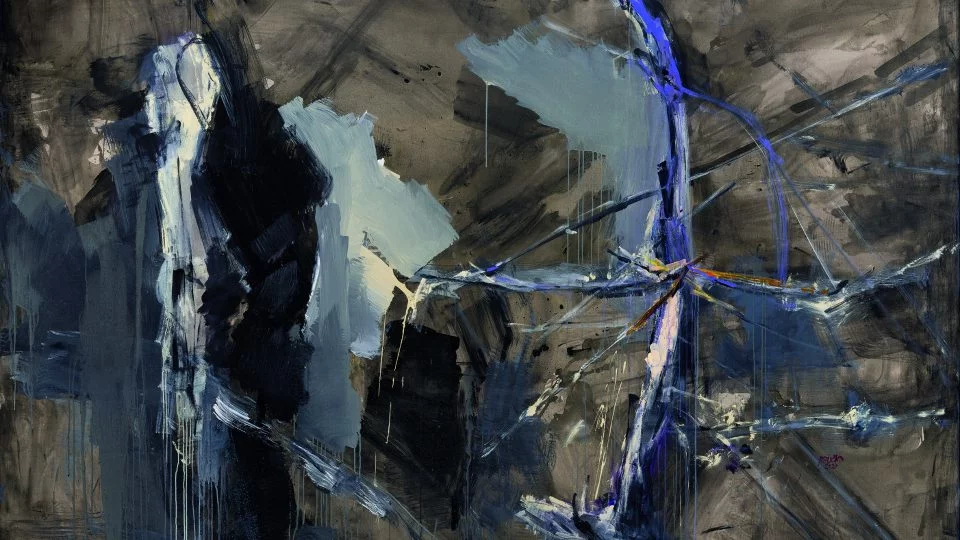
Battlefield
Courtesy of FONDATION VALMONT
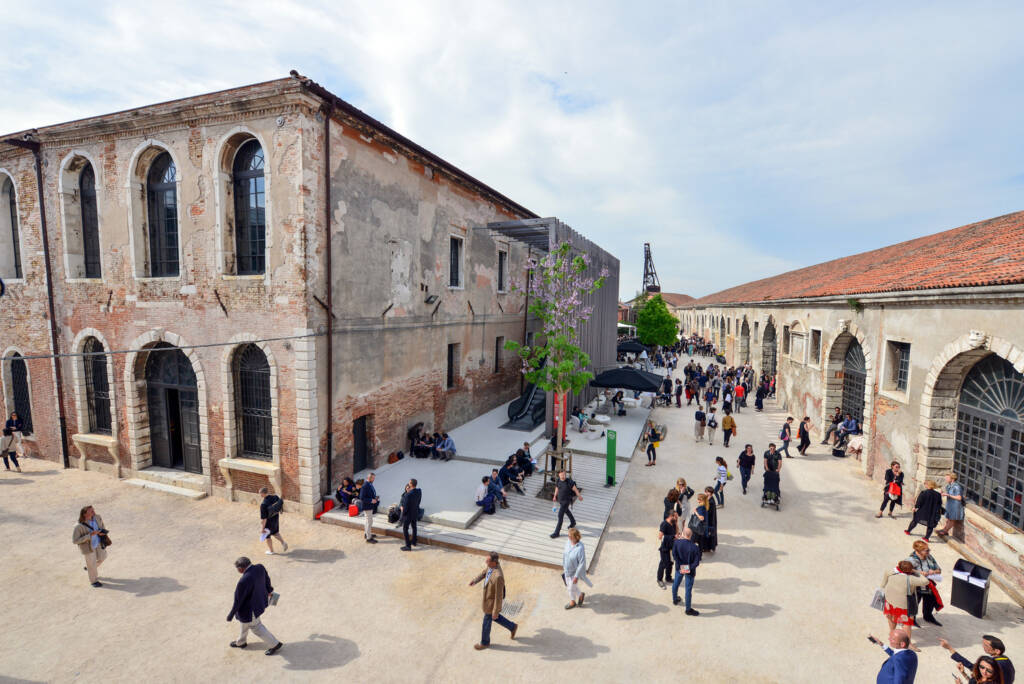
Le Forme Del Classico by Robert Mapplethorpe
April 10th – November 23rd, 2025
Fondazione Giorgio Cini
In collaboration with the Robert Mapplethorpe Foundation in New York, arrives Le Forme Del Clasico, an extensive retrospective of the life and works of iconic photographer, Robert Mapplethorpe, drawing a link between the practices used in ancient sculptures and the principles he applied to his oeuvre. Famed for his provocative portraits that documented the 1970s and 80s pop art, gay BDSM, and punk scenes of New York City through an intimate and often tender lens. Robert Mapplethorpe’s career was as influential as it was brief, as his life, like many other gay men of the time, was tragically cut short by AIDS. Le Forme Del Clasico will focus on Mapplethorpe’s use of classical proportions and the mathematical perfection within his compositions, bringing several pieces never before exhibited in Italy.
Anatomy of Space by Maria Helena Vieira
April 12th – September 15th, 2025
Peggy Guggenheim Collection
Through the collection of seventy works from museums and galleries alike, curator Falvia Frigeria brings to life Maria Helena Vieira Anatomy of Space, an exhibit detailing the paintings of Portuguese artist Maria Helena Vierira da Silva with works ranging almost fifty years beginning as early as the 1930s. With odes to her heritage in addition to her participation in leading the development of Informalism and Futurism, Vieira Da Silva’s works will be displayed with a concentration on her artistic distortion of space and depth; blending the concrete and the phantom.
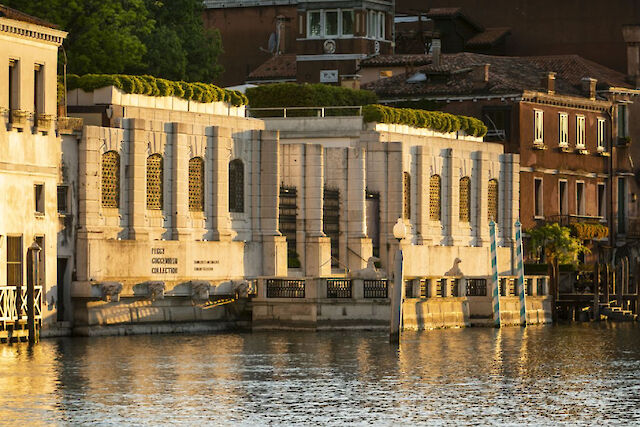
Written by ISABELLA MICELI
